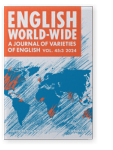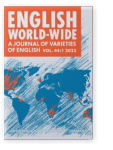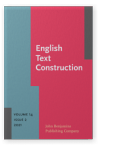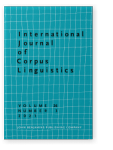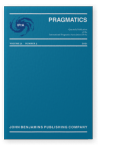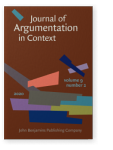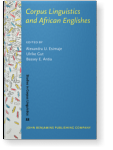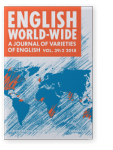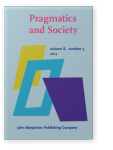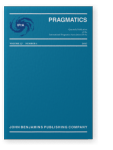Foluke Olayinka Unuabonah
List of John Benjamins publications for which Foluke Olayinka Unuabonah plays a role.
2024 Expressing gratitude in Nigerian English English World-Wide 45:3, pp. 255–282 | Article
This study explores nativisation processes in the area of pragmatics. Focussing on expressions of gratitude, more than 1,300 thanking speech acts elicited from Nigerian speakers of English via Discourse Completion Tasks (DCTs) and 628 thanking speech acts identified in various text categories of… read more
2023 “He’s a lawyer you know and all of that”: General extenders in Nigerian English English World-Wide 44:1, pp. 61–90 | Article
This study examines the use of general extenders in Nigerian English, from a variational corpus-pragmatic framework, with British English as a reference variety. The data are extracted from the Nigerian and British components of the International Corpus of English. The results reveal that… read more
2021 Stance and engagement in selected Nigerian Supreme Court judgments English Text Construction 14:2, pp. 231–252 | Article
The study investigates stance and engagement strategies of Nigerian Supreme Court judges in constructing arguments in their opinions. Fifty purposively selected judicial opinions were quantitatively and qualitatively analysed using Hyland’s stance and engagement model. The findings reveal that… read more
2021 “ Oya let’s go to Nigeria”: A corpus-based investigation of bilingual pragmatic markers in Nigerian English International Journal of Corpus Linguistics 26:3, pp. 370–395 | Article
This paper examines five bilingual pragmatic markers: oya, ke, ni, walahi, and ba, loaned from indigenous Nigerian languages into Nigerian English, with a view to investigating their sources, meanings, frequencies, spelling stability, positions, collocational patterns and discourse-pragmatic… read more
2021 “ Abeg na ! we write so our comments can be posted!”: Borrowed Nigerian Pidgin pragmatic markers in Nigerian English Pragmatics 31:3, pp. 455–481 | Article
This paper examines three borrowed pragmatic markers from Nigerian Pidgin into Nigerian English, abeg, sef and na, with a view to exploring their meanings, frequencies, spelling adaptability, syntactic positions, collocational patterns and discourse-pragmatic functions in Nigerian English. The… read more
2020 Argumentation in Nigerian investigative public hearings: A pragma-dialectical study of defendants’ discourses Journal of Argumentation in Context 9:2, pp. 199–218 | Article
This paper examines defendants’ argumentative discourse in the 2008 Nigerian investigative public hearings on the Federal Capital Territory administration. The data, which consist of nine defendants’ presentations, are analyzed qualitatively, using a combination of the pragma-dialectical and… read more
2020 Conflict-motivated acts in the open letters of two former Nigerian presidents English Text Construction 13:2, pp. 158–177 | Article
This study investigates conflict-motivated pragmatic acts employed in the open letters exchanged by two former Nigerian presidents (Olusegun Obasanjo and Goodluck Jonathan). The data are analysed using Mey’s pragmatic act theory. The findings reveal that while Obasanjo employs pragmatic acts of… read more
2019 Chapter 2.2. The use of stance markers in West African Englishes Corpus Linguistics and African Englishes, Esimaje, Alexandra U., Ulrike Gut and Bassey E. Antia (eds.), pp. 205–230 | Chapter
This chapter investigates the extent of similarity in the use of stance markers in two national varieties of West African English, Nigerian English and Ghanaian English, and compares them to British English. The frequency and stylistic variability of four semantic groups of stance markers were… read more
2018 Commentary pragmatic markers in Nigerian English English World-Wide 39:2, pp. 190–213 | Article
This article investigates the use of commentary pragmatic markers in Nigerian English. The frequency and stylistic variability of five types of commentary markers – assessment, manner of speaking, evidential, hearsay and emphasis markers – were examined in ICE-Nigeria and compared with ICE-Great… read more
2017 But as a stance marker in Nigerian investigative public hearings Pragmatics and Society 8:3, pp. 400–420 | Article
This study examines the kinds of stance that but as a contrastive marker signals in Nigerian investigative public hearings, with a view to exploring the contexts in which the stances are made. The study examines forty purposively selected investigative public hearing sessions which involve… read more
2017 “Are you saying …?”: Metapragmatic comments in Nigerian quasi-judicial public hearings Pragmatics 27:1, pp. 115–143 | Article
This study explores metapragmatic comments in Nigerian quasi-judicial public hearings, involving interactions between complainants, defendants and a hearing panel, with a view to investigating their forms, features, distribution and functions. The data are analysed quantitatively and… read more
